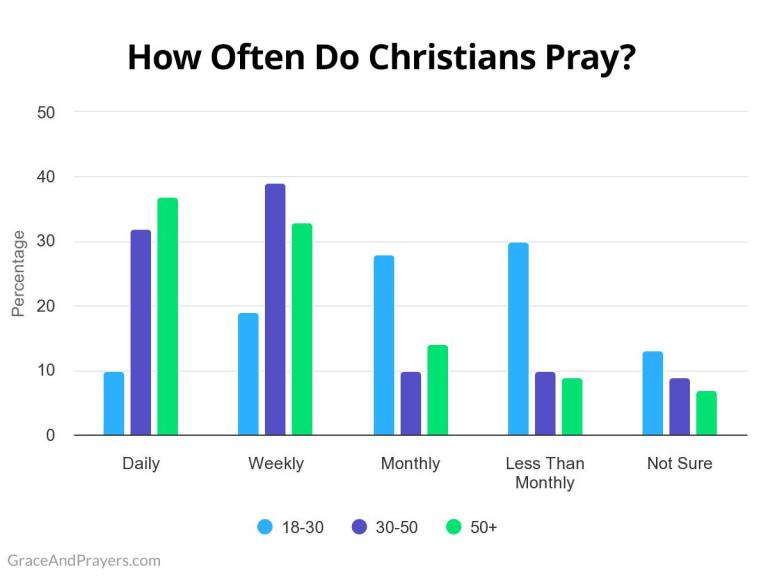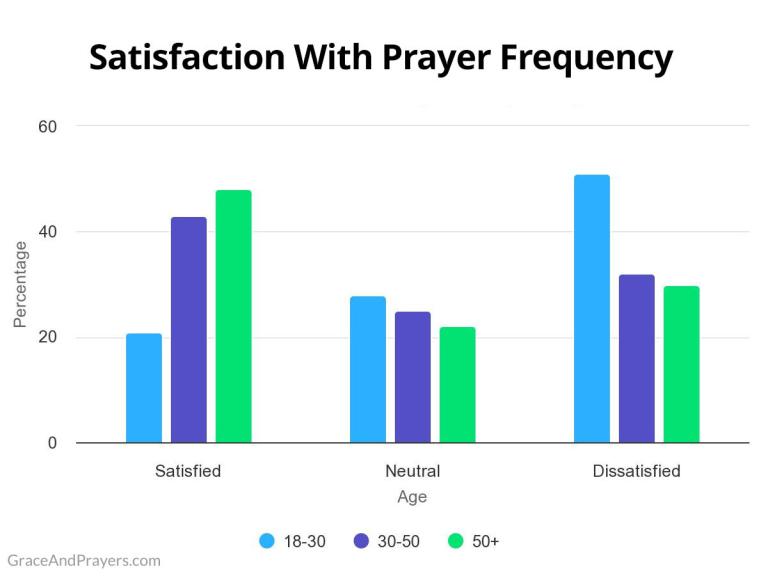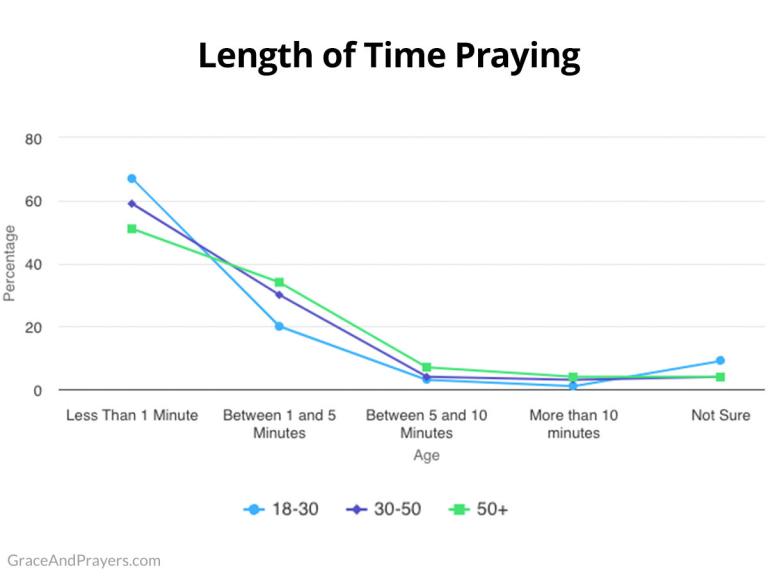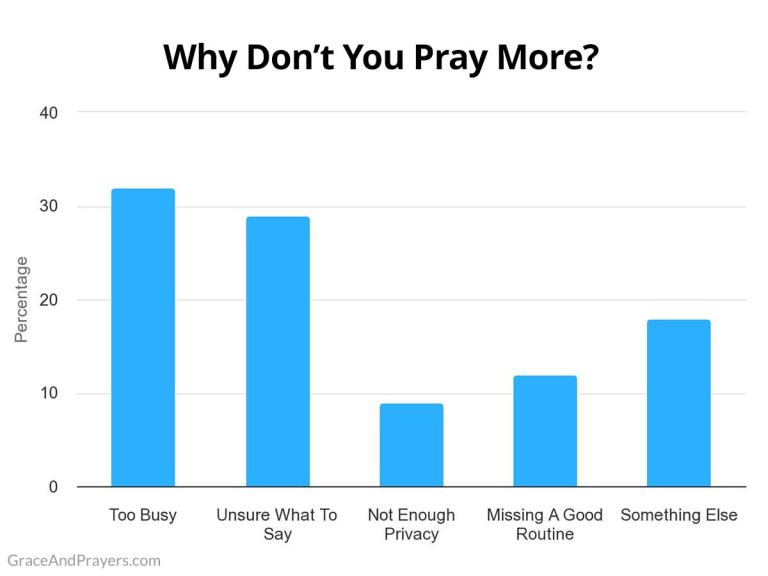
We surveyed 7,454 Christians across the United States over two years to find out more about how often they pray, how long they pray, and what stops them from praying more often.
We split the respondents by age and asked them to choose only one answer that best represented the frequency of their prayer. I’ll walk through each response, what we think it means, and finally what we’re doing about the responses we’ve seen.
Who Participated in This Survey?
We worked with a team of 50+ volunteers across 20 major cities to complete this survey. Volunteers approached people on street corners, parks, and public spaces to conduct the survey. A huge thank you to all the volunteers who helped make this research possible!
Participants were first asked if they identified as Christian. If they said yes, they were asked their age and then the following questions:
-
- How often do you pray?
- How do you feel about your current prayer frequency?
- How long do you typically pray?
- Those who indicated that they wanted to pray more were asked what stopped them from praying more frequently.
Participants were not given any incentive to participate in the survey.
How Frequently Christians Pray
We started our survey by asking all 7,454 Christians how often they pray.
We can see that younger Christians are praying much less frequently than older generations. Only 10 percent of Christians aged 18 to 30 pray daily compared to 37 percent of Christians over 50 years old.

How Christians Feel About Their Prayer Frequency
Regardless of how often they pray, we asked each age cohort to rate their satisfaction with how often they currently pray. We can see that 51 percent of the Christians aged 18-30 are dissatisfied with how often they pray, which is the same age group that prayed the least frequently.

How Long Christians Pray Per Prayer Session
We then asked Christians how long they pray when they do pray and we see that across all age groups, most prayers are less than one minute.

What Stops Christians From Praying More Often
We then asked the 2,915 respondents who indicated that they were dissatisfied with their prayer frequency what was stopping them from praying more often. Because of the smaller sample size, we did not split the response by age. Being too busy and being unsure of what to say are the biggest factors here.

What Does This All Mean?
We see that Christians aged 18 to 30 typically don’t pray daily. But we also see that they want to pray more frequently.
That’s exactly why we create written prayers that help people of all ages find the right words to connect with God across any subject. Our goal is to make it easy to start the conversation with God at any time of day.
Most Christians Only Pray For Less Than One Minute at a Time
This is one area where the differences between ages are much less pronounced and most Christians pray for only a short amount of time. Imagine trying to maintain a relationship with the most important person in your life by having a 30-second conversation with them…once a month. For a large portion of the Christians we surveyed, that’s exactly what they’re doing.
That’s why we create content to remind Christians that they can pray any time of day and about anything.
Most Christians That Want to Pray More Are Too Busy or Not Sure What to Say
We think these two major reasons are closely connected. If you’re not sure what to say and feel short on time (like most of us do) you’re going to feel like you’re too busy. We belive that by creating helpful and easy-to-use written prayers created by theologians, pastors, and ministers we can help people solve both of these problems.
What Do You Think?
These are just a few of the insights that we think this research shows but it all points to one thing for us: we’re on the right track with our mission to make prayer easier for the typical Christian.
But what do you think? What insight stands out the most for you?
Written by Ann McNeals, originally published on GraceandPrayers.com.
